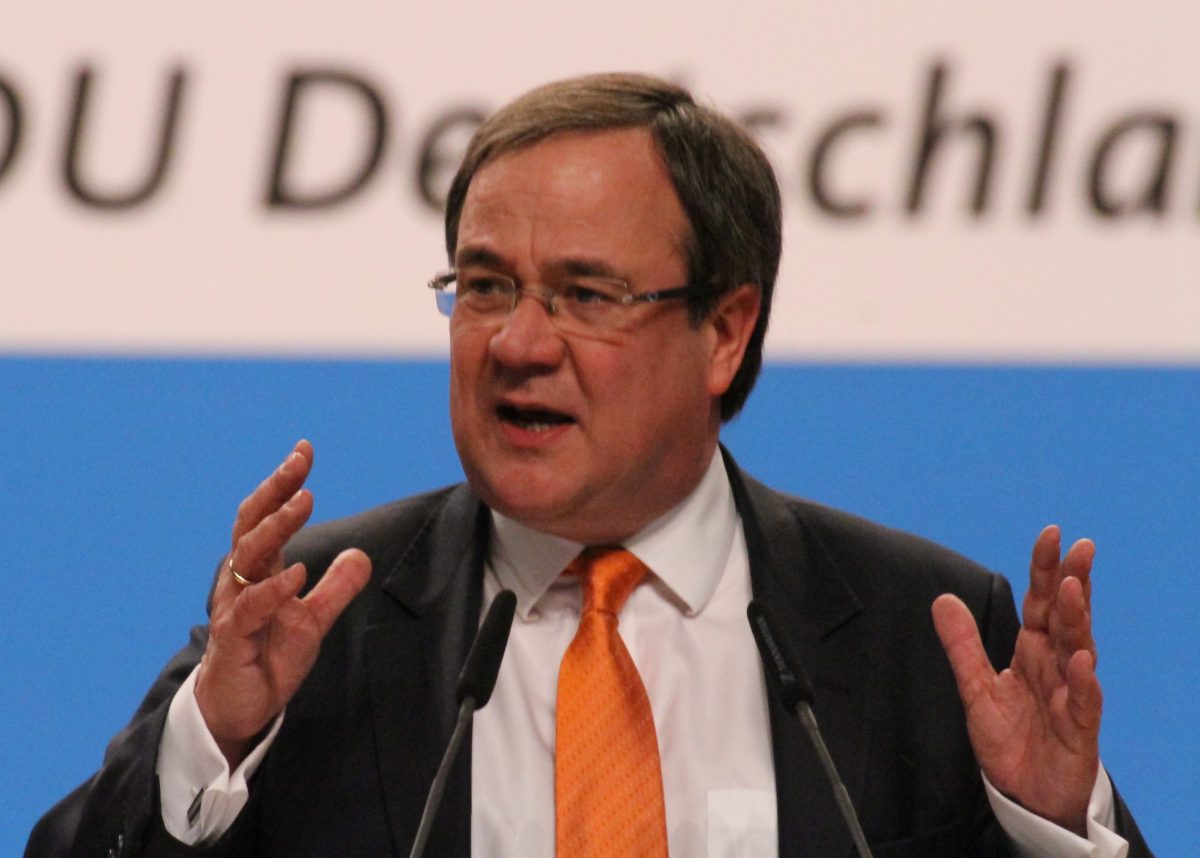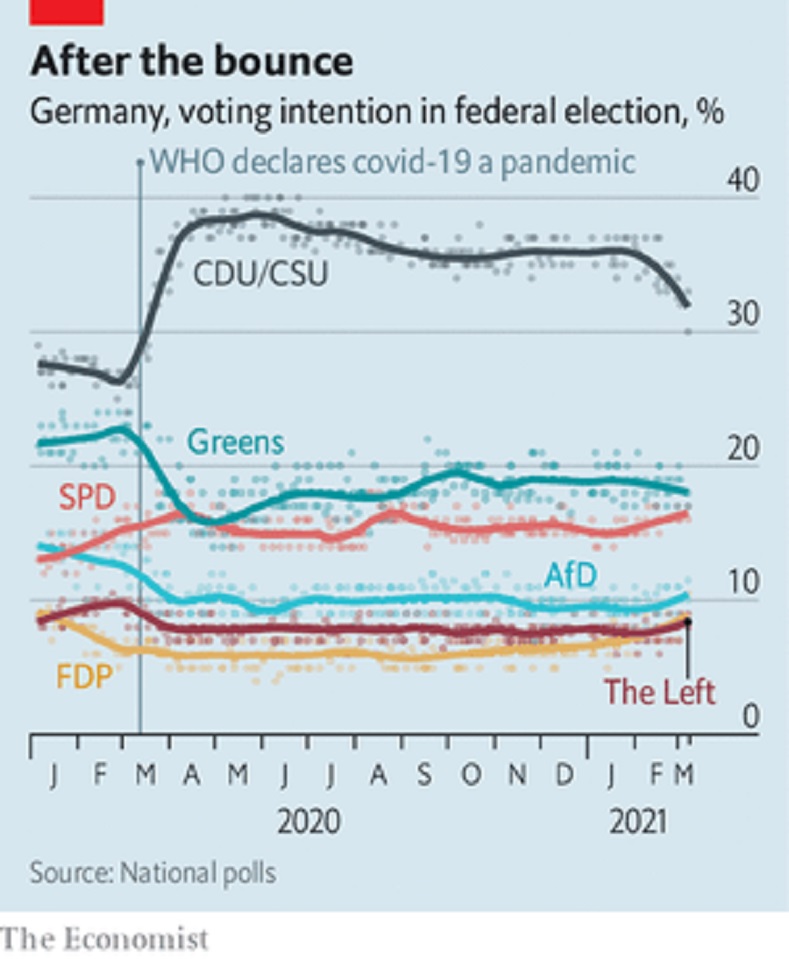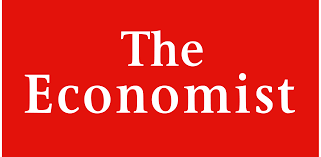Armin Laschet, the new party leader, may attract much of the blame

GERMANY’S RULING Christian Democrats (CDU) had been expecting a rough night. But the blow delivered on March 14th by voters in Baden-Württemberg and Rhineland-Palatinate, two states in Germany’s rich south-west that together account for around a fifth of the country’s population, was brutal. In Baden-Württemberg, an industrial powerhouse that the CDU once ruled for nearly six decades, forecasts suggest the party may have slumped to just 23% of the vote, its worst result in a big west German state for generations and four points less than it got last time, in 2016. The CDU was also on course for its worst-ever result in neighbouring Rhineland-Palatinate. Just a few months ago the party had high hopes of winning in both places.
The two state elections kick off what Germans call a “super election year”, in which six of Germany’s 16 states elect new parliaments ahead of a federal election on September 26th, after which Angela Merkel has said that she will stand down as chancellor. Neither of the states that have just voted is likely to see radical change: Winfried Kretschmann, the Greens’ popular premier in Baden-Württemberg (and the party’s only state leader), will begin his third term, and in Rhineland-Palatinate Malu Dreyer of the Social Democrats (SPD) will probably maintain her “traffic-light” coalition with the Greens and the liberal Free Democrats.
At some point in the six weeks after Easter, Mr Laschet and Markus Söder, the leader of the CSU, are meant to decide which of them is to lead their two parties, which choose a joint chancellor-candidate
But the results could have national consequences, in two ways. First, Mr Kretschmann may now opt to eject the CDU, the Greens’ junior coalition-partner in Baden-Württemberg, in favour of his own traffic-light arrangement. To do so would inevitably increase the speculation that such a coalition could take charge of Germany after the general election—meaning that Mrs Merkel’s party would leave government at the same time that she does. More immediately, the dreadful results for the CDU will affect its own preparations for the election, and potentially the prospects for Armin Laschet, its newly elected leader.
Having sailed through the early stages of the pandemic with soaring poll numbers (see chart), the CDU is suddenly facing trouble on several fronts. Most serious is a cluster of scandals involving MPs from the CDU and its Bavarian sister party, the Christian Social Union (CSU). Two CDU/CSU MPs were forced to resign after it emerged that they had earned hundreds of thousands of euros in mask-procurement deals last year. Others have been accused of accepting goodies to lobby the German government on behalf of Azerbaijan. The scandals have not yet affected the government, a “grand coalition” of the CDU/CSU with the SPD. But last week the leaders of the CDU/CSU parliamentary group felt sufficiently spooked to oblige all its MPs to confirm that they had not personally profited from the pandemic. Some in the party fear further revelations may lie ahead.
The scandals have contributed to a broader sense of malaise, as bureaucratic snafus have slowed Germany’s vaccine roll-out and the government’s once-smooth handling of the pandemic has hit the buffers. Earlier this month, amid growing public displeasure with one of Europe’s tougher lockdowns, Germany’s leaders agreed on a reopening strategy even as caseload numbers were rising and more infectious strains of the coronavirus were spreading quickly. The growth in cases has since accelerated, leaving the country teetering on a third wave even as schools and museums have started to reopen. As public backing for the government’s management of covid-19 has faltered, so has the CDU/CSU’s support.

All this presents Mr Laschet with a giant headache. After narrowly defeating a right-wing candidate for the party leadership in January Mr Laschet, a centrist in the Merkel mould, had started to win over some of his internal doubters. Yet outside the party he has done little to combat a growing reputation for complacency and listlessness. He was slow to condemn the misconduct of his parliamentary colleagues in public, and has brushed off any suggestion that he bears responsibility for the CDU’s performance in the state elections. (Many of his party colleagues disagree.) His approval ratings are dismal.
At some point in the six weeks after Easter, Mr Laschet and Markus Söder, the leader of the CSU, are meant to decide which of them is to lead their two parties, which choose a joint chancellor-candidate, into the general election. The nominee will become odds-on to succeed Mrs Merkel. And yet the party may have further to fall, once German voters fully register the fact of the still-popular chancellor’s imminent departure. After the latest debacle, some may start to wonder why anyone would want the job.

From The Economist, published under licence. The original article in English can be found on www.economist.com